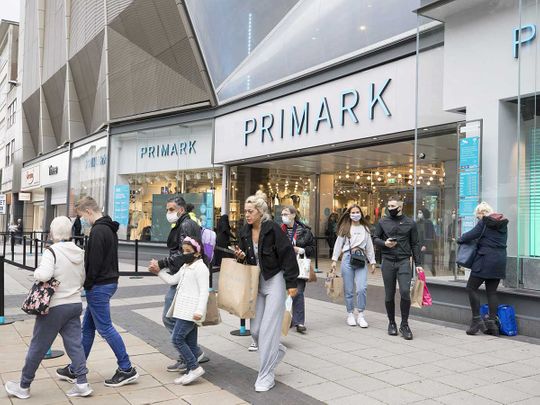
London: Households in England’s second city, Birmingham, are being urged to stop socialising with others from Friday as part of a dramatic tightening of coronavirus restrictions in the wake of a sharp spike in new confirmed cases.
While a study Friday revealed that the epidemic is doubling every seven to eight days in England, the mayor of the West Midlands, Andy Street, announced the tougher restrictions on household mixing in Birmingham, and the nearby boroughs of Solihull and Sandwell.
Though the ban formally comes into effect on Tuesday, Street advised affected residents “to avoid household mixing before then as it has been identified as one of the drivers of transmission.”
Street said the restrictions don’t apply to schools, workplaces or transportation.
“It is about household mixing,” he said.
The move, which affects more than 1 million people, is the latest hardening of restrictions following a recent spike in cases across the UK, particularly among young adults.
Earlier this week, the British government, which has the sole responsibility for public health matters in England, said social gatherings will be limited to six people from Monday both indoors and outdoors and that the new rules will be policed more stringently. The other nations of the UK - Scotland, Wales and Northern Ireland - have also announced similar restrictions on gatherings.
Over the past week, the number of confirmed cases in the UK has spiked dramatically. The daily increase has been running at near 3,000 for much of this week, around double the number the previous week.
Virus transmission rate increasing
The Scientific Advisory Group for Emergencies, which advises the government on virus-related matters, said the virus’ transmission rate was likely increasing across the whole of the UK. It said the reproduction rate is now between 1.0 and 1.2, meaning anyone with the virus is infecting, on average, a little more than one other. The R number was largely flat or below 1 over the summer, meaning the epidemic getting smaller.
Separately, a survey of over 150,000 volunteers, who were tested between Aug. 22 and Sept. 7, by Imperial College London and polling firm Ipsos MORI, found that cases are increasing steadily across England and that the epidemic was doubling every seven to eight days.
“We’ve seen all across the world how a rise in cases, initially among younger people, leads to hospitalisations and fatalities,” said Health Secretary Matt Hancock. “The pandemic is not over, and everyone has a role to play to keep the virus at bay and avoid another further restrictions.”
The Conservative government has faced strong criticism for its mixed messages since it started easing the coronavirus lockdown in late spring. It spent much of the summer, for example, encouraging people to eat out to help the hard-pressed hospitality sector and is now urging workers to return to their offices to help hard-hit businesses in city centres.
The UK has Europe’s worst death toll from the virus, with just over 41,600 deaths within 28 days of testing positive. The actual toll is believed to be far higher as the government tally doesn’t include those who died without having been tested.








